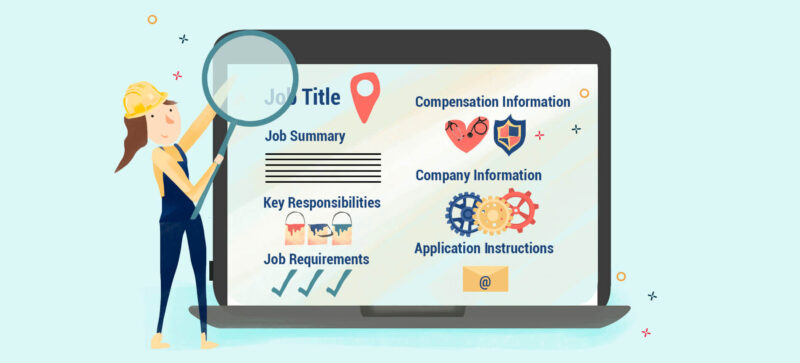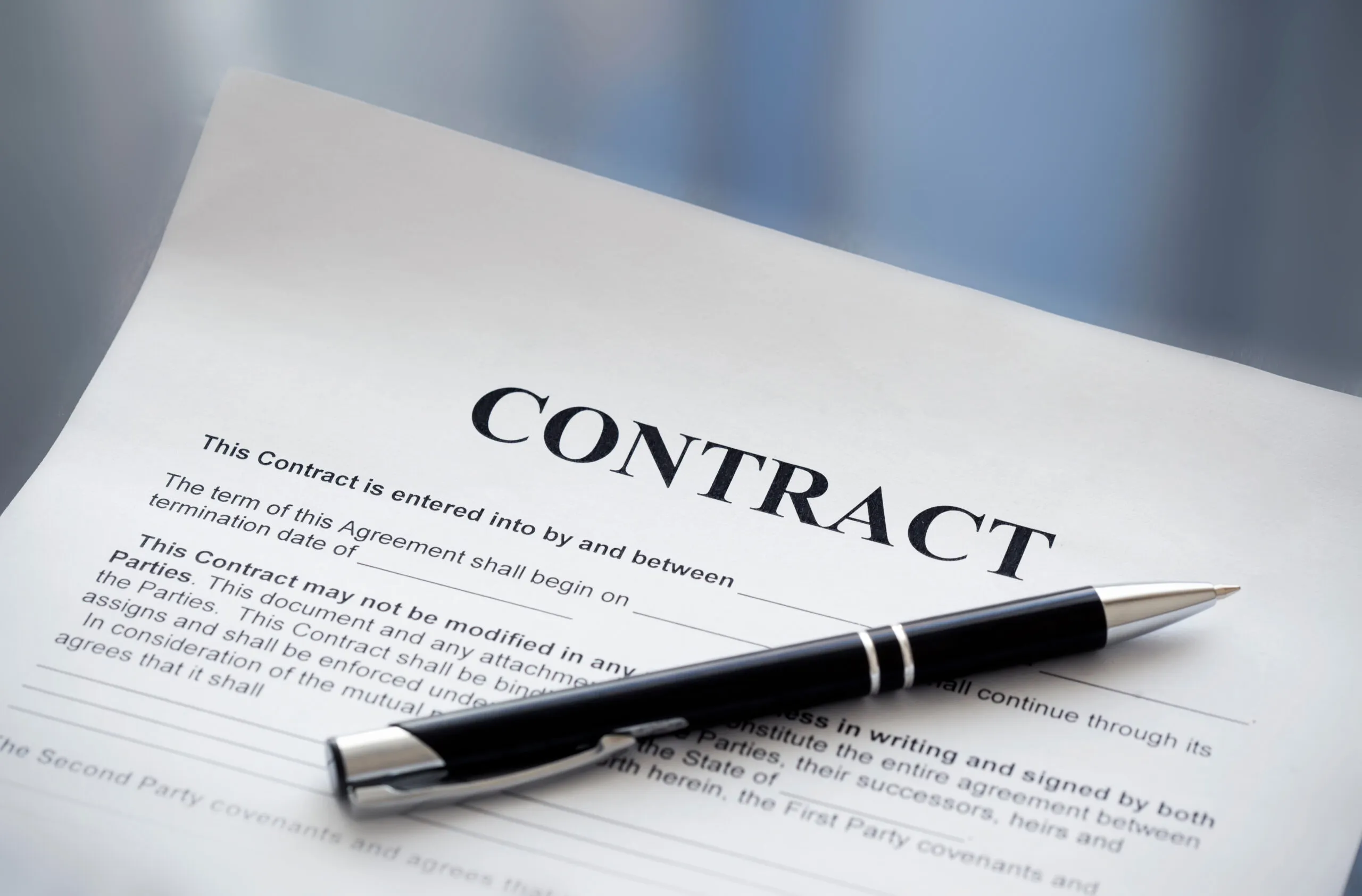Thinking of signing that new job contract? Stop right there.
One missed detail could cost you money, time, or your career.
Job contracts aren’t just paperwork. They’re legally binding. And they define everything—from your salary to what happens when you leave.
Before you sign, double-check these 9 critical points. Miss one, and you could regret it later.
Quick Contract Check Table
| ✅ What to Check | 💼 Why It Matters | ⚠️ Risk If Ignored |
| Job Title & Duties | Confirms your role matches what was promised | Misaligned responsibilities or job title downgrade |
| Salary & Bonuses | Ensures pay and incentives are accurate | Underpaid or missing performance bonuses |
| Start Date & Duration | Avoids overlap or contract confusion | Delayed onboarding or unintended temp status |
| Working Hours & Flexibility | Aligns with your lifestyle and expectations | Burnout, overwork, or scheduling conflicts |
| Benefits & Perks | Verifies what extras you’re entitled to | Missed healthcare, pension, or PTO benefits |
| Sick Leave & Holidays | Clarifies your legal and company-provided leave | Unpaid sick days or denied time off |
| Restrictive Clauses | Flags future career limitations | Limited job options or legal conflicts later |
| Termination Terms | Prepares you for probation or dismissal terms | Unexpected firing or no notice period |
| IP & Confidentiality | Protects your rights as a creator | Losing rights to your own work or ideas |
Job Title and Responsibilities: Are You Signing Up for the Right Role?

Your job title isn’t just a label. It defines your scope, authority, and how others in and outside the company see you.
Double-check that the title matches what was advertised. A small change—like “Manager” to “Coordinator”—can lower your salary, influence, or future job prospects.
Next, look at the listed responsibilities. Do they reflect what you discussed in interviews?
If the contract adds tasks you never agreed to, or is missing core duties, speak up before signing.
Tip: If your contract includes a vague catch-all like “any other duties as assigned,” ask for clarification in writing. It could be used to justify unrelated work.
Salary, Bonuses, and Payment Terms: What Are You Really Getting Paid?

Check the salary line—twice. Is it the same number you agreed on during negotiations or in your offer letter?
Look for the payment frequency too: monthly, bi-weekly, or weekly? Any surprises here could disrupt your budget.
Bonuses? Read the fine print.
Is it guaranteed, performance-based, or discretionary? If it’s vague, ask for written clarification. A promised bonus means nothing if it’s not in the contract.
Also confirm these details:
- Currency and payment method (especially for international roles)
- Benefits tied to performance (like stock options or profit sharing)
- Reimbursements (e.g., travel, relocation, home office setup)
Pro Tip: If the contract is in another language or you’re relocating abroad, use a document translation service to avoid financial misunderstandings.
Start Date and Contract Duration: When Does the Clock Start (and Stop)?
Start date matters more than you think.
If you’re transitioning from another job, make sure there’s no overlap or unpaid gap between contracts. Confirm the exact date you’re expected to begin—don’t rely on verbal agreements.
For fixed-term or temporary roles, look for:
- Clear start and end dates
- Terms for extension or renewal
- Early termination conditions
If the contract doesn’t mention an end date, it’s likely permanent. Still, check for probation periods or review clauses that could affect job security.
Warning: Vague or missing dates can lead to legal confusion—or leave you jobless without notice.
Working Hours and Flexibility: Can You Actually Work Your Way?

Working hours aren’t just about 9 to 5 anymore.
Check whether your contract lists fixed hours, shift rotations, or offers flexible or remote options. Make sure these match what was discussed.
Key points to verify:
- Core hours (e.g., required availability from 10am–3pm)
- Remote/hybrid work policies
- Overtime pay or time-off compensation
- Requirements for tracking/logging hours
For contractors and freelancers, this section often determines how much control you have over your schedule. If you’re expected to be “on call” or available outside of agreed times, get it in writing.
Pro Tip: If you’re working across time zones or internationally, clear time expectations help avoid misunderstandings and burnout.
Benefits, Perks, and Hidden Extras: What Comes With the Paycheck?
Salary is just one part of your compensation. Benefits can make—or break—your total package.
Scan your contract for:
- Health, dental, and vision insurance
- Pension or retirement plans
- Paid time off (PTO): vacation, holidays, personal days
- Parental leave and wellness programs
- Professional development or education support
If you negotiated anything extra—like a company car, gym membership, or remote work stipend—make sure it’s in writing. Verbal agreements are easily forgotten (or denied).
Watch out: Some contracts refer to the employee handbook for full benefit details. Ask to review it before signing.
Sick Leave and Holiday Pay: Know Your Right to Rest

Rest isn’t a luxury—it’s your legal and contractual right.
✅ Confirm how many paid holidays, sick days, and personal leave days you’re entitled to.
Check if there are:
- Blackout dates (when leave isn’t allowed)
- Carry-over rules (can unused days roll over?)
- Doctor’s note requirements
- Sick pay policy—full pay or statutory minimum?
Contractors and freelancers? Don’t assume you’re covered. You may need to arrange private insurance or accept unpaid leave unless otherwise stated.
Quick Win: If your leave policy seems vague or missing, ask for clarification before signing. It’s easier than fighting for time off later.
Restrictive Clauses: What You Can’t Do After You Leave
Before you sign, read the fine print on restrictive clauses—they can follow you long after the job ends.
Look out for these common ones:
- Non-compete: Limits where and when you can work for a competitor.
- Non-solicitation: Prevents you from approaching former clients or coworkers.
- Confidentiality: Bans sharing company secrets or sensitive data.
- Non-dealing: Stops you from working with old clients even if they reach out to you.
These clauses vary by location and industry—some are enforceable, others not. Either way, they can limit your future job options.
Important: If your contract is in a different language, make sure you fully understand the terms before signing. Misinterpreting legal clauses can cause long-term career issues.
Termination Terms and Notice Periods: How the Job Ends Matters
Don’t just think about how the job starts—understand how it could end.
Check these contract points carefully:
- Notice period: How much advance notice do you or your employer need to give to end the contract?
- Probation period: Are there different termination rules during the first few months?
- Severance: Is there any compensation if you’re let go without cause?
- Termination for cause vs. convenience: Can the employer fire you for any reason, or must they prove misconduct?
Overlooking this section could leave you jobless without warning—or without pay.
Pro tip: Don’t assume verbal agreements apply. Only written terms are enforceable.
Intellectual Property: Who Owns What You Create?

If your role involves creating content, designs, code, or inventions, your contract should spell out who owns the results of your work.
🔍 Look for clauses covering:
- IP assignment: Does everything you produce during your employment belong to the company?
- Outside work: Can you keep ownership of work created on your own time?
- Use of your work: Does the company retain rights even after you leave?
This is especially important for roles in tech, design, R&D, or marketing. If it’s unclear, ask for clarification—don’t risk losing rights to your own creations.
Final Thoughts
A job contract is more than a formality—it’s your legal safety net. Read every line. Question anything unclear. Once you sign, you’re bound. Protect your rights before committing.
FAQs
1. Do I need a lawyer to review my job contract?
Not always, but if the contract includes complex clauses or you’re unsure about legal terms, consulting a lawyer is a smart move—especially for executive or international roles.
2. What if my contract doesn’t match the offer letter?
Bring it up immediately. Get any promised terms added to the contract before signing—verbal agreements don’t count once the contract is signed.
3. Is it normal to negotiate contract terms?
Yes. It’s common—and often expected—to negotiate salary, benefits, start date, or restrictive clauses. Just do it before signing.
4. What happens if I break a restrictive covenant?
You could face legal consequences, including lawsuits. Understand these clauses fully to avoid future trouble.
5. What if the contract is in another language?
Always get a certified translation. Misunderstanding contract terms can cost you. A reliable document translation service helps you avoid legal pitfalls.
6. Can I ask for changes after signing?
It’s difficult. Always raise concerns and negotiate before signing. Post-signature changes usually require mutual agreement and new paperwork.
7. How do I know if my job is at-will or contract-based?
Check the termination clause. If it’s at-will, the employer can terminate anytime for any legal reason. Contracts may override this with specific terms.
